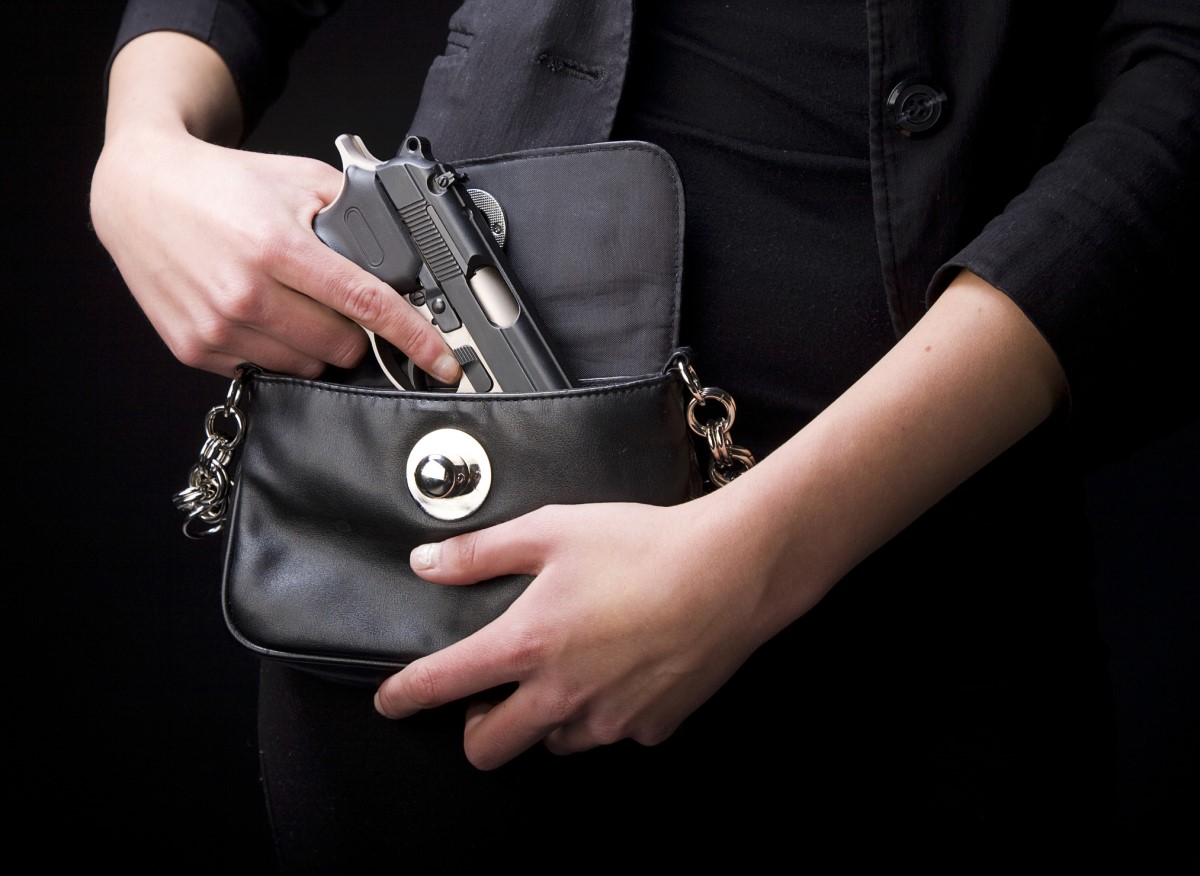Despite SCOTUS Ruling, New York Aims to Restrict Gun Carrying
After being told that a state law restricting handguns outside the home in New York violates the U.S. Constitution, lawmakers in the Empire State are responding with defiance.
On June 23, the U.S. Supreme Court struck down a New York law requiring that residents must prove a “proper cause” if they want to carry a concealed handgun in public. In an extraordinary special session one week later, however, the New York Legislature passed a bill containing broad measures to blunt the ruling’s effect.
“We’re not going backwards,” Gov. Kathy Hochul, a Democrat, said before signing the bill into law. “They might think they can change our lives with the stroke of a pen, but we have pens, too.”
Five other states — California, Hawaii, Maryland, Massachusetts, and New Jersey — have similar laws, and four of them are either following New York’s lead or strongly considering it. The Supreme Court ruling doesn’t immediately nullify these state laws; it just makes clear that they are unconstitutional and must be revised.
New York’s New Law
New York’s prompt steps to revise its law makes clear that lawmakers there have no intention of rolling over. New York’s new law lays out a strict licensing requirement for obtaining a concealed-carry permit, including 16 hours of classroom training, four character references, and a list of social media accounts. It also calls for regular audits of gun permits, strict storage requirements, and the creation of a database to record the sale of ammunition.
The most sweeping part of the new law, though, is a long list of the physical locations where handguns will still be prohibited. The list is essentially a response to Justice Clarence Thomas, who wrote in his majority opinion that the state had misapplied the concept of “sensitive places” to substantiate its “proper cause” requirement for public gun carrying. Essentially, he said, that meant the entire state is a sensitive place, which is too broad a definition.
He suggested that sensitive places need to be better defined — and New York’s lawmakers took him at his word. The new law provides definitions — many, many of them — in intricate detail.
The following is but a small sampling:
- Any government building, including courts
- Any place of worship
- Libraries, public playgrounds, public parks, and zoos
- The buildings and grounds of any educational institution
- Any vehicle used for public transportation and all public transit terminals
- Any establishment licensed for on-premises alcohol consumption
- Any place used for performing arts, entertainment, or sporting events
- Any gathering of people who are expressing their “constitutional rights to protest or assemble”
- Polling places
- Times Square
Predictably, some Republicans in the Democrat-controlled New York Legislature are pushing back. Arguing that the law is unconstitutional, Sen. Daniel Stec argues that the law’s “sensitive places” definitions would make 700,000-acre Catskill Park off-limits for guns.
Clearly, the law will face constitutional challenges in the weeks or months to come.
Actions by Other States
Meanwhile, a quick rundown on what the other similarly situated states are doing:
- California amended existing law to require applicants for concealed-carry permits to be at least 21 years old and have not threatened or committed violent acts. They must undergo a training course and provide three character references. It also expands the areas where weapons are prohibited, such as school zones and transit hubs.
- In Hawaii, lawmakers are discussing legislation that would place a variety of restrictions on concealed-carry applicants.
- In Maryland, Republican Gov. Larry Hogan told state law enforcement that “proper cause” can no longer be applied in determining who gets a concealed-carry permit. He said it would be “unconstitutional to continue enforcing this provision.”
- In Massachusetts, Attorney General Maura Healey issued guidance to law enforcement that “proper cause” can no longer be a factor. However, she emphasized that law enforcement may continue to restrict gun carrying in a variety of ways, such as strict licensing and enforcement of “prohibited persons” and “suitability” provisions in existing state gun law.
- In New Jersey, Democratic Gov. Phil Murphy ordered law enforcement to comply with the Supreme Court’s ruling, but also signaled that he intends to work with lawmakers to craft a bill similar to New York’s.
More Guns Everywhere
The gun-rights forces have gained steady ground in state legislatures since Florida passed its right to carry law in 1987. Today, 43 states are “shall issue” states, meaning that law enforcement shall issue licenses without requiring applicants to show a proper cause as long as they are not a convicted felon or mentally incompetent.
The states like New York, Hawaii, Maryland, Massachusetts, and New Jersey were once the norm. Now they are fighting for survival.






